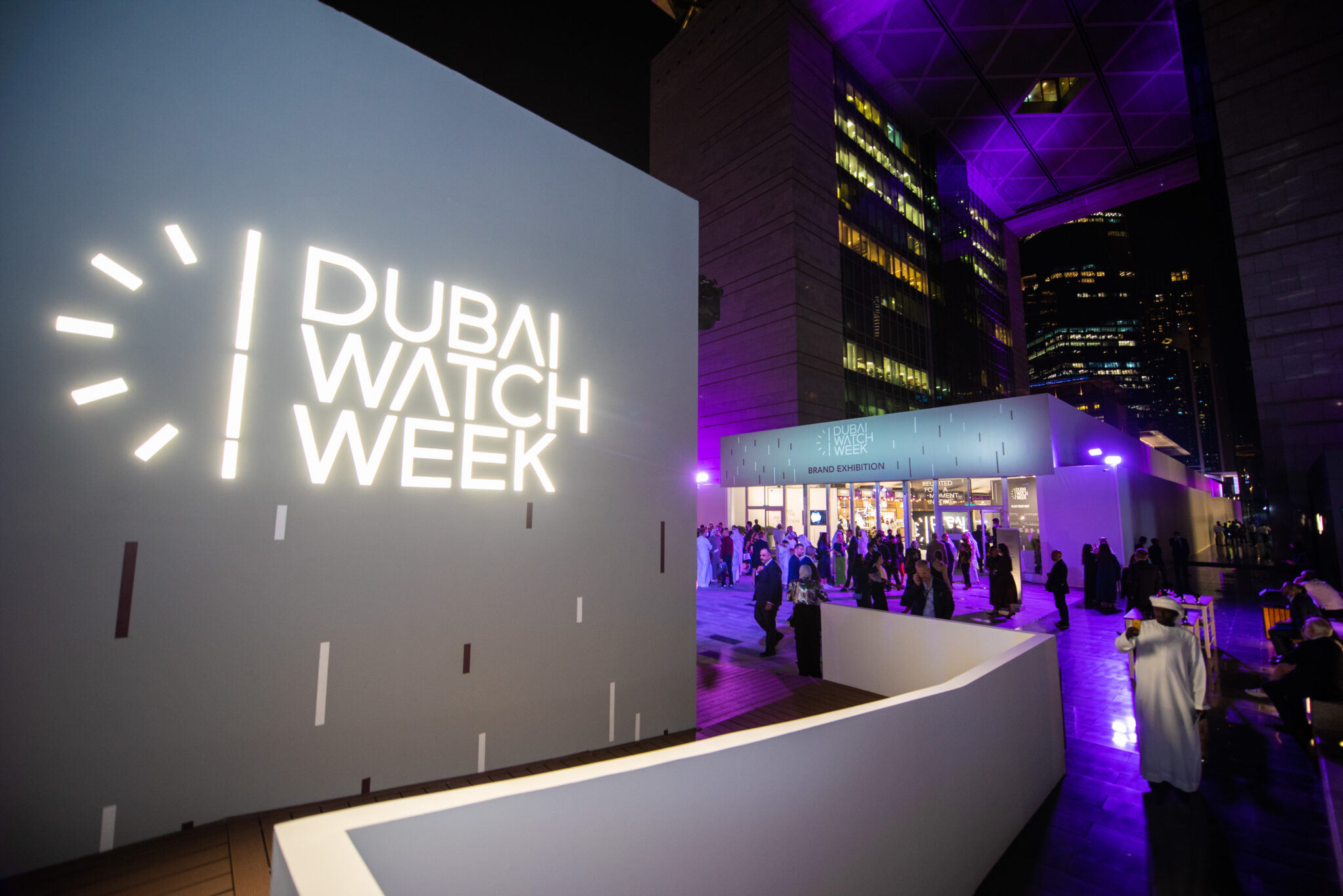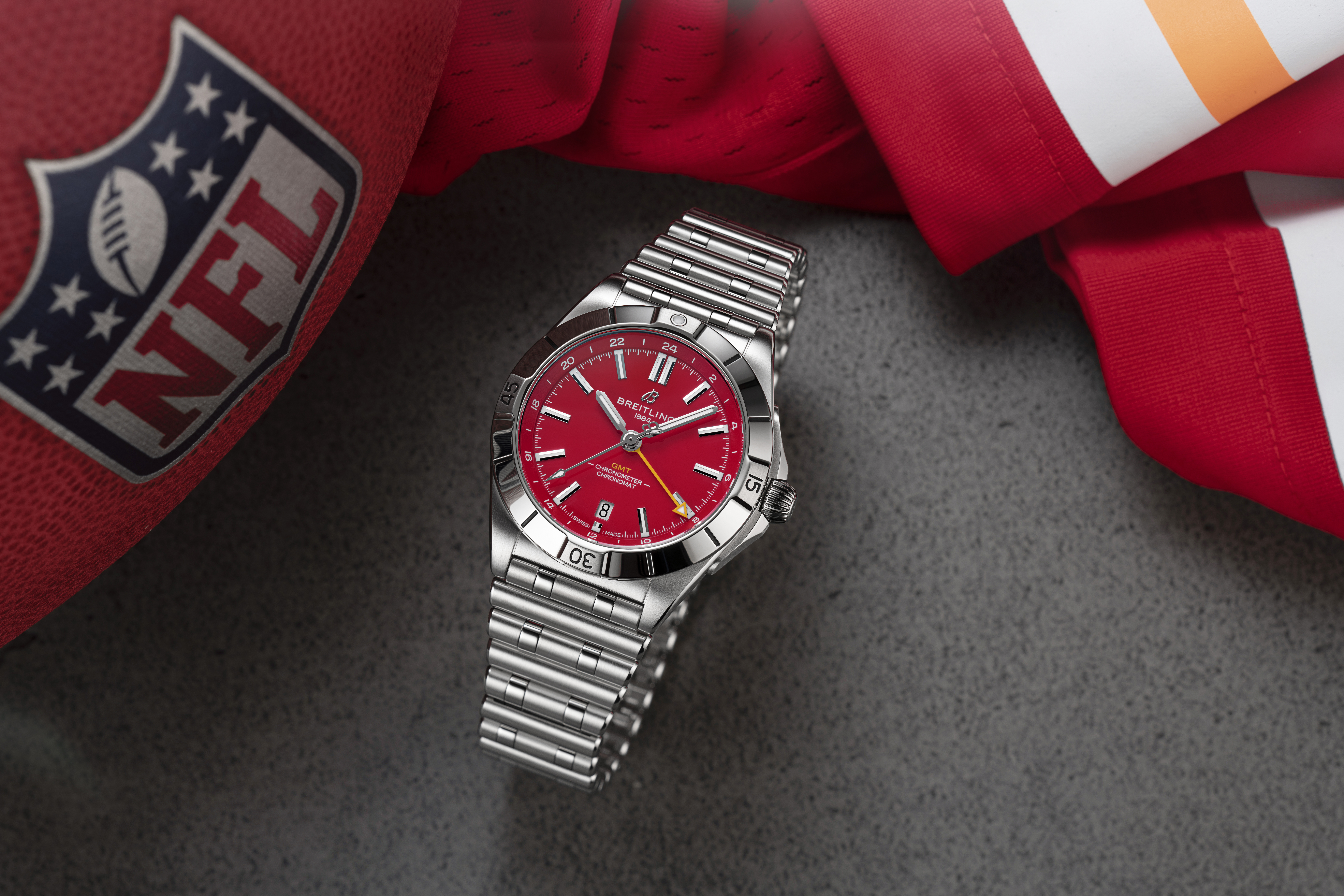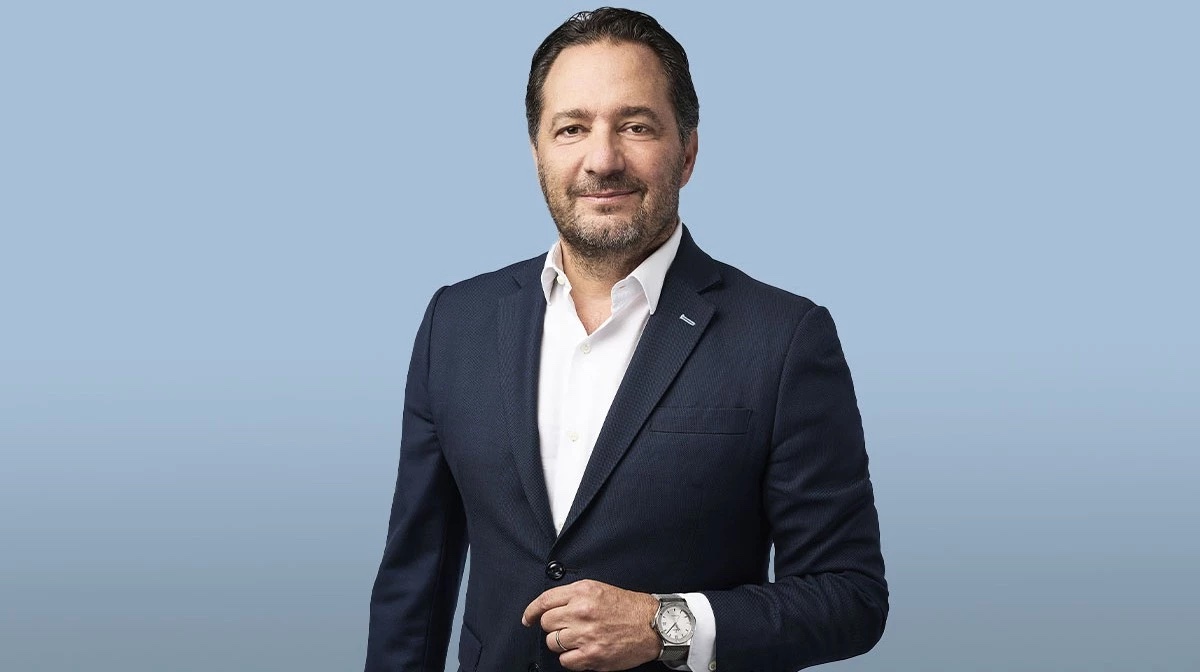From its high profile NFL partnership to grey market risks, the Swiss watchmaker’s chief executive reveals how luxury brands must engage in strategic market diversification whilst seizing new growth opportunities.
The luxury watch industry faces one of its most challenging periods in decades. Against this backdrop of uncertainty, some brands are choosing to retreat, whilst others are doubling down on bold strategic moves.
Georges Kern, CEO of Breitling, belongs firmly in the latter camp. Speaking on the first episode of The Luxury Society Podcast’s newly launched second season, Kern offered candid insights into how the Swiss manufacturer is not only weathering current storms but positioning itself for long-term growth through unexpected partnerships and strategic market expansion. His perspective reveals a leadership philosophy centred on resilience, adaptability, and the unwavering belief that luxury brands must never stop moving forward.
The Tariff Impact: Crisis or Catalyst
The announcement of 39% tariffs on Swiss watch imports to the United States represents an existential challenge for an industry where America accounts for approximately 25% of global luxury watch consumption. According to the Federation of the Swiss Watch Industry, US imports of Swiss timepieces totalled CHF 4.4 billion (USD $5.46 billion) in 2024, making it the largest market globally.
“Obviously these are very bad news. As there were first discussions with the Trump administration and the Swiss government, everybody thought [it would be] 10% tariffs or something. Europe has 15%, the UK 10%. And this was the level of expectation,” Kern acknowledges. “And, obviously when the 39% was announced as a result, it was an incredible disappointment and for many people, shock.”
The scale of this disruption cannot be overstated. Research from McKinsey & Company indicates that tariffs exceeding 25% typically trigger significant market restructuring, forcing companies to reconsider fundamental aspects of their business models. For luxury watchmakers, whose Swiss heritage forms a core component of their value proposition, the challenge is particularly acute.
Yet Kern’s response demonstrates the pragmatic resilience that has characterised successful luxury brands throughout history. “Breitling, thank God we, in a way, smelled it and we shipped lots of stock before the official announcement. I think we have now enough stock for the next two or three months, so I really hope that a solution will be found in this period of time,” he reveals.
This forward-thinking inventory management reflects broader trends in luxury supply chain strategy. As Richard Mille’s Peter Harrison described in an earlier episode of the podcast, independent brands that maintain tight control over their operations often demonstrate greater agility in responding to market disruption than their conglomerate-owned counterparts.
Strategic Market Diversification
Rather than retreating in the face of adversity, Kern advocates for aggressive market expansion as the antidote to geographic concentration risk. His philosophy reflects a fundamental truth about luxury brand management: resilience comes through diversification and relentless pursuit of growth opportunities.
“As a company, you have to deal with it. You have to be better than the others. You have to outperform. You have to find other markets,” Kern states. “We cannot just be sailing in the sunshine, right? Sometimes you have storms, and you have to deal with that.”
India, in particular, represents a significant opportunity, with Swiss watch exports to the country growing by 25% in 2024, according to Federation of Swiss Watch Industry data. “Switzerland is one of the very few countries having a free trade agreement with India. The market is developing very well. Also, Latin America, Central America are doing well, and the Middle East,” Kern reveals.

Credit: Dubai Watch Week
Yet the tariff situation creates unintended consequences that extend far beyond simple price adjustments. Kern identifies a fundamental risk that could reshape global luxury consumption patterns: “The real risk I see is the grey market. That’s the big risk. If you have price difference of 10 – 15% at such a price point, you have gigantic grey market.” This concern reflects the delicate balance luxury brands must maintain between regional pricing strategies and brand protection.
The mechanics of this grey market development are both predictable and problematic. “There will be a dramatic transfer of purchases in Canada, in Mexico, in the Caribbean, and in Europe,” Kern explains. “And of course, consumers, even an American consumer buying a watch abroad, should declare it at the customs, but nobody will do that.”
This reality creates what Kern describes as a prohibition-style dynamic. “It’s very easy to transport. We have seen this for decades, how the grey market functions, and they will not do it. So, it is like the prohibition. And for me, that’s the biggest risk.” The analogy proves particularly relevant, as economic research consistently demonstrates that artificial price disparities created through policy intervention tend to generate parallel markets that ultimately undermine the intended effects.
Bold Partnerships: The NFL Strategy
Perhaps the most audacious element of Breitling’s current strategy is its groundbreaking partnership with the National Football League. Announced on 27 August following what Kern describes as “long negotiation,” this collaboration represents more than a sponsorship deal; it signals a fundamental shift in how luxury watch brands can connect with American consumers outside traditional channels.
Kern emphasises that this partnership was strategic rather than reactive to tariff pressures. “The US market is our biggest market. We are the first luxury brand being sponsor of the NFL. The NFL is the ultimate American sport representing everything – it is a strategic sport, it is a physical sport, it is also a family sport,” he explains.
The strategic logic is compelling. NFL viewership averaged 17.5 million viewers per game in 2024, according to Nielsen data, with particularly strong engagement among affluent demographics that align closely with luxury watch consumers. The timing proves particularly astute, as the league’s cultural visibility has expanded dramatically in recent times through high-profile storylines, including Taylor Swift’s relationship with Kansas City Chiefs player Travis Kelce, drawing new demographics to the sport.

Credit: Breitling
“I think our product fits the NFL. We are an outdoor brand. We are, in a way, also a sports brand. It fits American football. The values are the same,” Kern adds. This values-based approach to partnership development reflects broader trends in luxury marketing, where authentic brand alignment has become crucial for maintaining credibility with increasingly sophisticated consumers.
Long-term Industry Resilience
Despite current challenges, Kern maintains an optimistic outlook for the luxury industry’s fundamental prospects. “I’m sure that the market will recover, and we’ll be ready at that moment in time,” he states. “I went through so many crises in my life, and we always came back. The industry always came back.”
His analysis of luxury consumption patterns reveals sophisticated understanding of consumer psychology during economic uncertainty. “What you have to understand is that in the luxury industry, people postpone purchases. They don’t cancel purchases,” Kern observes. “Somebody who wants to buy a watch or a bag will buy it sooner or later.”
This insight aligns with research from Bain & Company, which found that whilst the personal luxury goods market experienced a slight decline in 2024, the firm projects continued long-term growth at a compound annual growth rate (CAGR) of about 4-6% and reach a size of approximately €460 billion (USD $536 billion) to €500 billion (USD $582.5 billion) by 2030. The demographic trends supporting this resilience appear particularly robust.
“And the second thing is, we are humans and we are epicureans and people will always buy luxury products,” Kern continues. “And the third element, you cannot fight demography. We are 8 billion people on the planet. More and more people have access to these price points and to these products.”
Georges Kern’s leadership of Breitling during this period of change demonstrates how brands can navigate uncertainty while positioning for future growth – even amidst market volatility. The tariff challenge facing Swiss watchmakers is just one of many obstacles that brands will need to overcome in today’s environment. Brands that respond with agility, creativity, and unwavering commitment to their core values will emerge stronger.
As Kern succinctly puts it: “You have to move forward.”
__________________________
Listen to the full interview with Georges Kern on Episode 1 of The Luxury Society Podcast Season 2 on Apple, Spotify, and other major podcast platforms.
To discover more about how independent watch brands are thriving despite industry challenges, read our interview with Peter Harrison, CEO EMEA of Richard Mille, or listen to the podcast episode available on Apple, Spotify, and other major podcast platforms.
Subscribe to The Luxury Society Podcast to receive notifications about new episodes featuring luxury industry leaders. Never miss an episode as we continue exploring the themes shaping the future of luxury.










